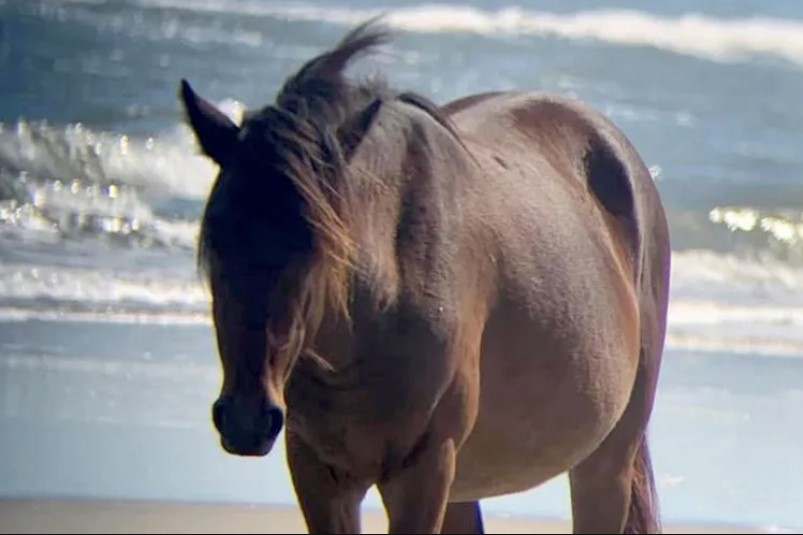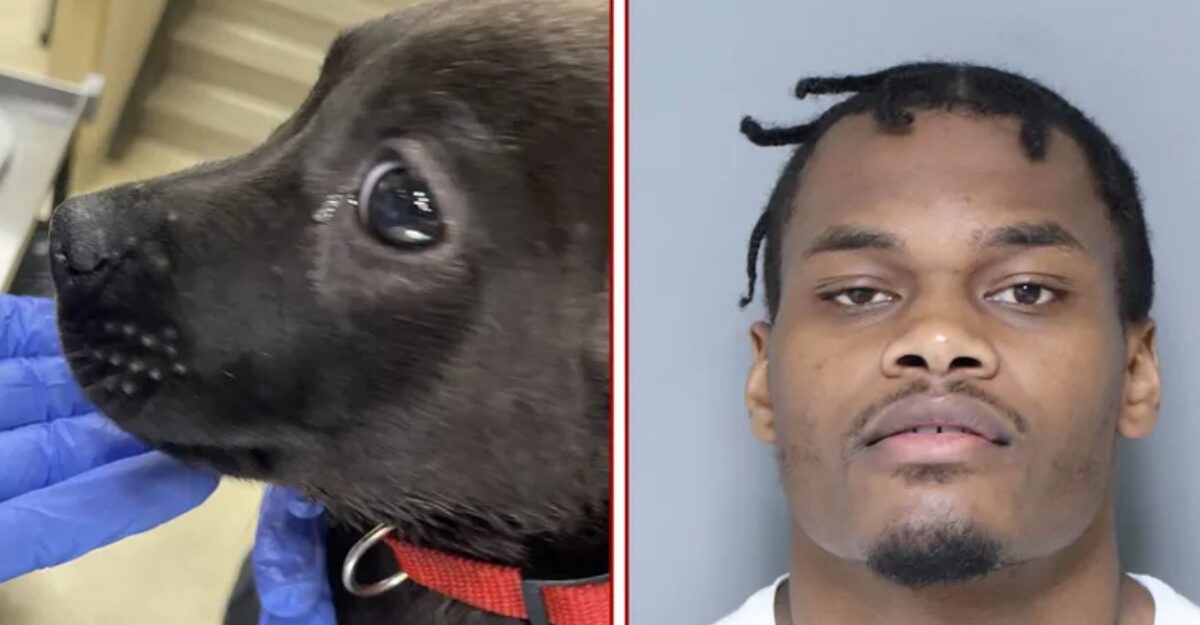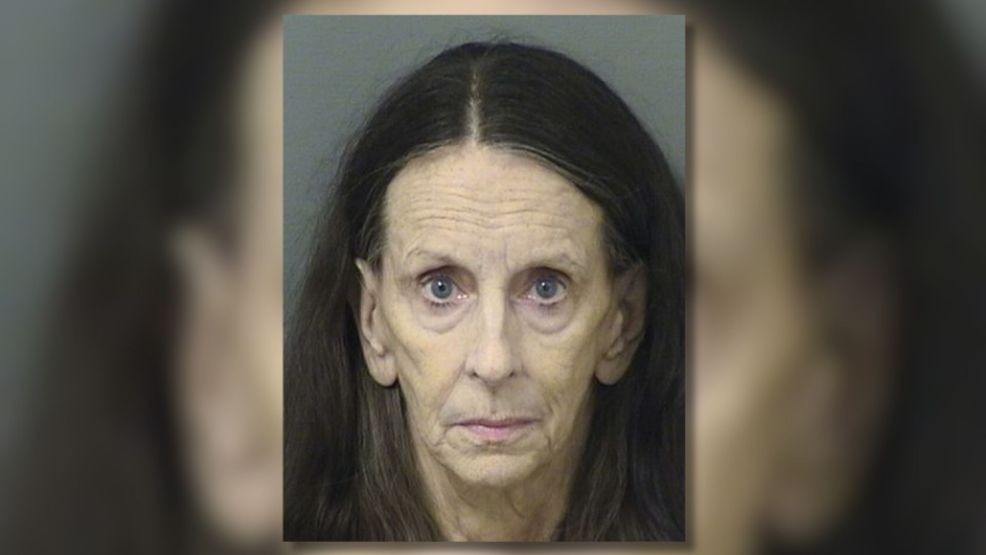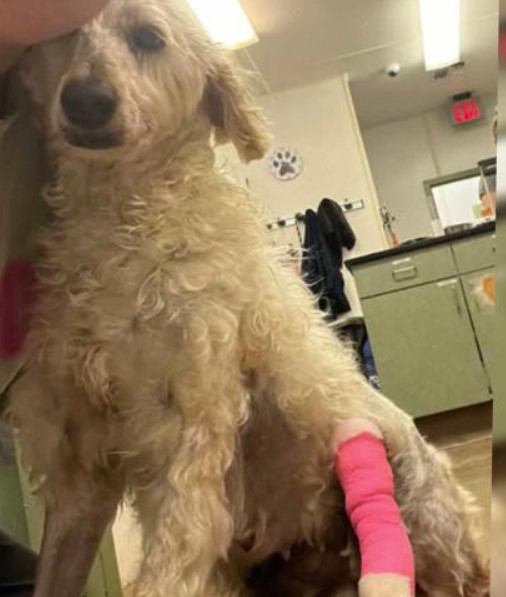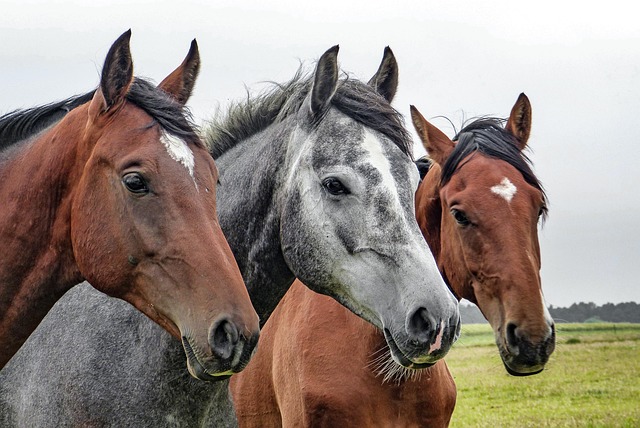A tragic incident occurred on a North Carolina beach early Sunday morning, June 14, reportedly claiming the life of a critically endangered horse known as Alexander. The five-year-old stallion was allegedly struck and killed by an SUV driven by a 26-year-old woman, Shannon Seamster, who has been arrested for driving while intoxicated (DWI).
According to the Currituck County Sheriff’s Office (CCSO), officials responded around midnight to a report of a collision between a vehicle and a horse at the county’s milepost 19 checkpoint. Eyewitnesses indicate that the horse was “killed on impact” in a collision described as both tragic and shocking. Seamster’s Chevrolet Tahoe was towed from the scene, and she faces misdemeanor charges, having been released later after posting a $2,500 secured bond.
The Corolla Wild Horse Fund (CWHF), a nonprofit organization dedicated to the preservation of the Corolla wild horse population, confirmed the identity of the horse and expressed their devastation following the incident. In a heartfelt tribute, the CWHF noted that Alexander was particularly special, being the last surviving offspring of his mother. The organization emphasized the significance of his genetics to the critically endangered population, stating, “Alex’s genetics can never be replaced, and in a critically endangered population that is a devastating blow.”
As reported by local news, the nonprofit has actively worked to protect and conserve these wild horses, calling attention to the importance of safety while driving on the beach. “We encourage locals to let this tragedy serve as a reminder to be extremely cautious when driving on the 4×4,” the CWHF wrote in a social media post. “Be aware of your surroundings and drive slowly and carefully — especially at night.”
The horse fund reached out to the community following the incident, stating, “At this time, we do not have any additional details to share about the nature of the collision or the driver; that is in the hands of law enforcement.” They highlighted the tragedy’s emotional weight, explaining, “This is a tremendous loss for the herd and for those of us who are close to these horses and work so hard to protect them.”
Alexander had overcome significant challenges during his early years, growing into a “beautiful young stallion” who had a promising future ahead of him. His untimely death raises awareness about the perils that face wild horses in the region and underscores the critical need for responsible driving practices.
The CCSO continues to investigate the circumstances surrounding the collision. Meanwhile, the CWHF mourns the loss of a horse they had high hopes for, describing him as a “very special young horse.” As the community reflects on this event, the tragedy serves as a somber reminder of the intersection between wildlife and human activity on the beaches of North Carolina.

